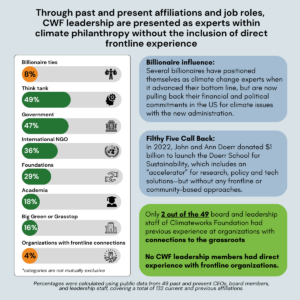Over a decade ago, I was a faith-based community organizer in central Florida. My job was to visit churches, build relationships with pastors and church members, agitate them around concerns they had for their community, and organize them to make demands for systemic change. The key to motivating most churches was to draw from their faith traditions, so my days were spent talking about values that lead to a just world, reading about leaders from scripture who drew on their faith to build communities of fairness and equity and listening for testimonies from community members about what their faiths tell them the right solutions are to the problems they face.
Community leaders often asked me about my own faith tradition as a means to get to know me, but one pastor asked me a pointed question that shifted my outlook on my work. He turned my questions back to me, asking, “How does your faith inform your work?” It forced me to think about whether I considered religion to be a tool to advance justice, a motivator to pursue justice or an institution where justice was needed. The webinar NCRP hosted on April 20th wrestled with those questions and others as the panelists considered how philanthropy can engage more with faith communities.
I moderated a conversation among three leaders working at the intersection of faith and social justice. Shireen Zaman, program director at the Proteus Fund, Lauren Spokane, fund development coordinator at PICO National Network, and Abby Levine, director of the Jewish Social Justice Roundtable, spoke to common questions that funders have about faith-based or faith-focused work. Several common themes arose during the conversation.
Often when I engage with leaders who do faith-based social justice work, the conversation veers towards unpacking the stereotypes about the groups involved and the purpose of the work. Not all stereotypes are negative, but all are limiting, leading funders and potential partners to discount the scope, effectiveness and possibility of faith-based work. Lauren suggested that one way to overcome this acute challenge is for faith-based groups to think about how to translate their work to the priorities of funders.
But a large part of the responsibility lies with funders to check their own stereotypes. All the speakers discussed some specific stereotypes that affect the faith traditions involved in their work, and they acknowledged that stereotypes can get in the way of the work. But they noted that the rewards are worth the challenge of overcoming this obstacle. When we are able to get beyond stereotypes, organizations and faith leaders can draw on people’s values through their faith traditions to be a powerful motivator for systems change work. Not only does it drive individuals to act, but it can illuminate commonalities among faith groups that lead to strong coalitions.
Such coalitions are important to advancing social justice with a faith perspective. Despite the challenges that come with building coalitions of any type – aligning values, strategies and tactics; addressing conflict; balancing power within the group – faith and religion can transcend those obstacles and propel coalitions beyond differences across racial groups, age, class and geography and other aspects of identity.
The power of faith-based work is building relationships, and all the speakers emphasized that funders need to support that practice; it’s not enough for funders to say that it should be done. Shireen talked about the investment that Proteus Fund has made to build unlikely alliances across groups with shared experiences. Both time and monetary resources are needed to build strong relationships among partners.
The potential of faith-based social justice work is undervalued by philanthropy; each speaker talked about successes through their work, and I encourage readers to watch the recording of the webinar to hear more about these wins.
The question that the pastor asked me over a decade ago was laced with a recognition of this potential. I don’t remember how I answered him then, but my experience since has taught me that faith traditions and religion serve all three purposes: They are tools, they are motivators and they are housed in institutions that can reflect the justice we seek in the world.
What would it look like if we reclaimed faith in the fight for social justice? Funders have an important role to play in that.
Jeanné Isler is the field director at NCRP. She is a former faith-based community organizer, a practicing Catholic and a leader in interfaith and social justice events in Washington, D.C. Follow @NCRP on Twitter.

































































































































































































































































































































































































































